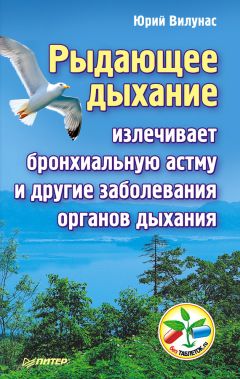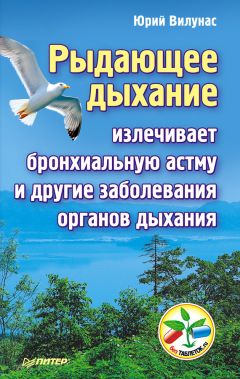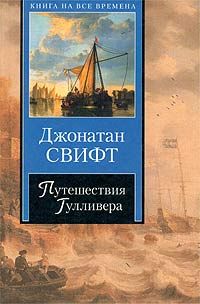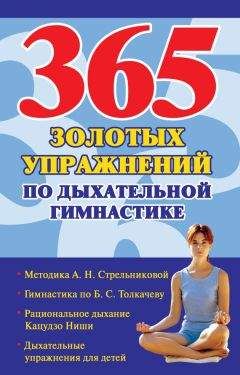Джонатан Свифт - Английский язык с Джонатаном Свифтом. Путешествия Гулливера
official [q'fISql], ordinary ['Ld(q)nrI], whereas [wFq'rxz]
If the family fails to pay for the education and care of their child, the money will be taken by the Emperor's officials.
The nurseries for children of ordinary people are managed in a similar manner, except that the children are apprenticed at the age of seven, whereas children of high rank continue their education until the age of fifteen.
In the female nurseries (в женских воспитательных заведениях), the young girls from wealthy families are educated like the boys (девочки из состоятельных семей воспитываются /так же/, как и мальчики; wealth — богатство, состояние), except that their physical exercise is not so hard (за исключением того, что физические упражнения /для девочек/ более легкие: «не так трудны»). They learn some rules for domestic life (они обучаются правилам /ведения/ домашнего хозяйства), and they are taught that a wife should always be a reasonable and agreeable companion (и их учат /тому/, что жена всегда должна быть разумной и милой подругой /мужа/; to teach), since she cannot always be young (так как ее молодость не вечна: «она не может быть всегда молодой»). When the girls are twelve years old (когда девочкам/девушкам исполняется двенадцать лет), which is the age at which they may marry (то есть наступает пора замужества: «что является возрастом, в котором они могут выходить замуж»), they are taken home (их забирают домой).
wealthy ['welTI], taught [tLt], companion [kqm'pxnjqn]
In the female nurseries, the young girls from wealthy families are educated like the boys, except that their physical exercise is not so hard. They learn some rules for domestic life, and they are taught that a wife should always be a reasonable and agreeable companion, since she cannot always be young. When the girls are twelve years old, which is the age at which they may marry, they are taken home.
The girls from ordinary families are taught all kinds of work (девочки из обычных семей обучаются всякого рода работам) suited to their sex and status (подобающим их полу и общественному положению; to suit — подходить, удовлетворять требованиям; годиться). The children who become apprentices do so at the age of seven (дети, которым предстоит заниматься ремеслами, в возрасте семи лет становятся подмастерьями: «дети, которые становятся ученицами/подмастерьями, делают так = это в возрасте…»). The rest are kept at school until they are eleven (остальные остаются в школе до одиннадцати лет).
The poorest workers keep their children at home (самые бедные рабочие и крестьяне держат своих детей дома). Since their work is only to cultivate the earth (так как их работа — всего лишь обрабатывать землю), education is unimportant (/то их/ образование не имеет значения: «неважно/несущественно»). There are hospitals for the old and sick (для стариков и больных существуют больницы/богадельни), and begging is unknown in this Empire (и прошение милостыни есть /явление/ неизвестное в этой империи).
status ['steItqs], eleven [I'lev(q)n], unimportant ["AnIm'pLt(q)nt]
The girls from ordinary families are taught all kinds of work suited to their sex and status. The children who become apprentices do so at the age of seven. The rest are kept at school until they are eleven.
The poorest workers keep their children at home. Since their work is only to cultivate the earth, education is unimportant. There are hospitals for the old and sick, and begging is unknown in this Empire.
It may amuse the curious reader to know a little (любознательному читателю возможно будет забавно/интересно узнать немного/кое-что; may — может /для выражения разрешения, допускаемой возможности, предположения/; to amuse — развлекать; позабавить, развеселить) about my household arrangements (о моей повседневной жизни: «домашнем/бытовом укладе»; to arrange — приводить в порядок; расставлять; устраивать, организовывать; arrangement — приведение в порядок; установившийся порядок, устройство) during my nine months and thirteen days in this country (во время девяти месяцев и тринадцати дней /проведенных мною/ в этой стране). I had a table and chair made for me out of the largest trees in the royal park (у меня были стол и стул, сделанные из самых больших деревьев королевского парка). Two hundred seamstresses were employed to make me shirts (двести швей были призваны/наняты для того, чтобы изготовить мне рубахи; seam — шов; to seam — соединять швом, сшивать), sheets and table linen (простыни и столовое белье; linen — полотно; холст; белье), all of the strongest kind they could get (все — из самого прочного рода/сорта /полотна/, какое /только/ они могли достать; to get — получить; приобрести; добыть).
arrangement [q'reInGmqnt], seamstress ['sImstrIs, 'semstrIs], linen ['lInIn]
It may amuse the curious reader to know a little about my household arrangements during my nine months and thirteen days in this country. I had a table and chair made for me out of the largest trees in the royal park. Two hundred seamstresses were employed to make me shirts, sheets and table linen, all of the strongest kind they could get.
I lay on the ground to be measured (я лег на землю, чтобы меня измерили). One person stood at my neck (одна /швея/ стала у моей шеи), and another at my knees (другая у коленей), each holding a strong thread (каждая держа /в руках/ крепкую нить). A third person measured the thread with a ruler one inch long (третья измерила длину нити линейкой в один дюйм). Then they measured my right thumb (затем они смерили мой большой палец), for they calculated (поскольку они рассчитали = пользовались вычислением) that twice around the thumb is once around the wrist (что окружность запястья вдвое больше окружности большого пальца: «дважды вокруг большого пальца есть /то же, что/ один раз вокруг запястья»), the same applying to the neck and waist (то же = такое же соотношение применимо к шее и талии; to apply — применять /к чему-л./; употреблять /для чего-л./; касаться, относиться; применяться; распространяться /на кого-л., что-л./). And with the help of my old shirt (и при помощи моей старой рубахи), which they used as a pattern (которую они использовали в качестве образца), they fitted me exactly (они сшили мне все как раз по размеру; to fit — быть впору, в самый раз; подгонять, пригонять, прилаживать; exactly — в точности; точно; как раз).
wrist [rIst], apply [q'plaI], pattern [pxtn]
I lay on the ground to be measured. One person stood at my neck, and another at my knees, each holding a strong thread. A third person measured the thread with a ruler one inch long. Then they measured my right thumb, for they calculated that twice around the thumb is once around the wrist, the same applying to the neck and waist. And with the help of my old shirt, which they used as a pattern, they fitted me exactly.
Three hundred tailors were employed to make my clothes (триста портных были призваны для того, чтобы сшить мне одежду/костюм). They had another way of measuring (у них был другой способ измерения). I knelt down (я стал на колени; to kneel) and they put a ladder up against my neck (и они приставили к моей шее лестницу). One of them climbed the ladder (один из них взобрался по лестнице) and let a plumb-line fall from my collar to the floor (и опустил отвес от воротника до полу; line — веревка, шнур; to fall — падать; to let fall — опускать, спускать), which was the length of my coat (что /и/ составило длину моего кафтана).
knelt [nelt], plumb-line ['plAmlaIn], length [leN(k)T]
Three hundred tailors were employed to make my clothes. They had another way of measuring. I knelt down and they put a ladder up against my neck. One of them climbed the ladder and let a plumb-line fall from my collar to the floor, which was the length of my coat.
I had three hundred cooks to prepare my food (у меня было = мне выделили триста поваров, чтобы готовить = они готовили мою = мне пищу). They lived with their families in huts built around my house (они жили с семьями в домиках/бараках, построенных вокруг моего дома; hut — лачуга, хибара, хижина; барак). At meal times I took twenty waiters in my hand (во время приема пищи я брал в руку двадцать лакеев; to wait — ждать; прислуживать, обслуживать /за столом/; waiter — слуга, прислуживающий за столом; официант) and placed them on the table (и ставил их /себе/ на стол). A hundred more waited below on the ground (еще сотня /слуг/ прислуживали внизу на полу) with dishes of meat and barrels of wine (поднося блюда с едой/кушаньями и бочки с вином). The waiters above pulled up the food (лакеи /стоявшие/ наверху = на столе поднимали: «втаскивали» пищу наверх), as we would pull up a bucket from a well (как мы поднимаем ведро из колодца). A dish of their meat was a good mouthful (одного их блюда как раз хватало, чтобы наполнить рот; mouthful — количество еды, помещающееся в рот; кусок; глоток) and so was a barrel of their liquor (то же касается и бочки с вином; liquor — /спиртной/ напиток). Their mutton is not as good as ours (их баранина не так хороша, как наша = уступает нашей), but their beef is excellent (но /зато/ говядина превосходна). I usually ate a goose or turkey in one mouthful (гуся или индейку я съедал = проглатывал обыкновенно в один прием) and, I must confess, they tasted far better than ours (и я должен признать, они = эти птицы гораздо вкуснее наших; to taste — пробовать /на вкус/; иметь какой-л. вкус /о еде/; to taste good —быть вкусным; better — лучше /срав. степень от good/).
prepare [prI'pFq], liquor ['lIkq], taste [teIst]
I had three hundred cooks to prepare my food. They lived with their families in huts built around my house. At meal times I took twenty waiters in my hand and placed them on the table. A hundred more waited below on the ground with dishes of meat and barrels of wine. The waiters above pulled up the food, as we would pull up a bucket from a well. A dish of their meat was a good mouthful and so was a barrel of their liquor. Their mutton is not as good as ours, but their beef is excellent. I usually ate a goose or turkey in one mouthful and, I must confess, they tasted far better than ours.
One day His Imperial Majesty requested (однажды его императорское величество изъявил желание) that he and his Consort might have the pleasure of dining with me (чтобы он и его супруга могли иметь удовольствие отобедать со мною; to request — просить, обращаться с просьбой, вежливым требованием). I placed them on state chairs upon my table (я поместил их на столе в парадных креслах) with their guards around them (с их = личной охраной вокруг них). Flimnap, the Lord High Treasurer, was there too (Флимнап, лорд верховный казначей, тоже присутствовал). I noticed that he often looked at me in an unpleasant way (я заметил, что он часто с недоброжелательством: «в неприятной/недружественной манере» посматривал на меня). I have reason to believe (у меня есть основания думать) that this visit from his Majesty gave Flimnap an opportunity (что это посещение его величества дало повод Флимнапу; opportunity — удобный случай, благоприятная возможность; шанс) of saying bad things about me to his master (выставить меня в дурном свете перед своим господином: «наговорить обо мне плохого своему…»).




